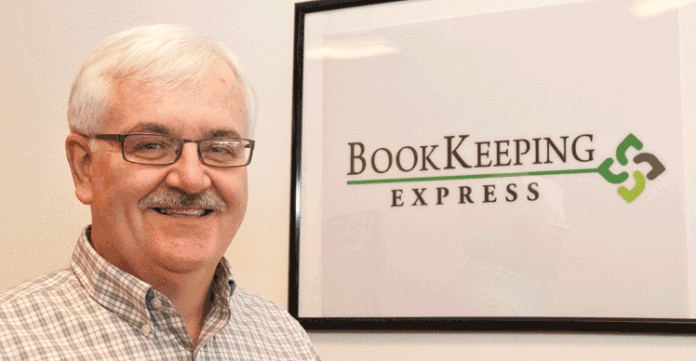Just when you think you’ve got it all figured out, the game changes. Or, at least it can feel that way if you’re an accountant.
“There are always new rules coming down the pike,” said Myron Hertel, who has been a CPA for 35 years and opened both a BookKeeping Express and a Liberty Tax business in early January.
For example, the new 1099-K requirement states that online payment services such as PayPal and eBay, along with third-party merchant service providers, must issue 1099s at the end of the year to businesses with more than 200 transactions and $20,000 in credit card sales.
The intent of the new ruling, according to accountant John Caton, president of Vancouver-based Caton, Day & Co. CPAs PC, is to capture the estimated $400 billion “tax gap” between tax revenue that is being collected and what is truly owed.
However, said Caton, the cost of complying with the new regulation will drive up overhead costs, which will get passed on to the consumer.
“The first couple years will be a nightmare of things not being reconciled,” said Caton. He predicted a slew of correspondence audits, where the IRS asks for more documentation to support a tax return – something that Caton said can cost a client upwards of $1,000.
Sharif Burdzik, president of the Hazel Dell/Salmon Creek Business Association and branch manager for two Riverview Community Bank branches, said that credit card and online payment companies will charge for sending out 1099-Ks, making credit card payments even more expensive.
In fact, Caton said a couple of his clients have decided that accepting credit card payments is more expensive than the risk of a bad check, and are going to stop taking credit cards. However, he said, many clients aren’t in that position, such as restaurant owners, where customers expect to be able to pay by credit card.
Besides lamenting the cost of complying with the 1099-K rule, local experts are concerned about the validity of the system. As Burdzik explained, the 1099-K will report a business’ gross credit card receipts, but it will not reflect chargebacks from stolen cards or non-received merchandise. Therefore, he said, business owners must keep good records so they can explain why their tax return doesn’t match their 1099-Ks.
Norman Paulson, managing shareholder of Camas-based Paulson & Lessard CPAs PC, identified another problem with the 1099-K form. The 1099-K’s gross receipts will include sales tax, but businesses don’t pay income tax on sales tax. Therefore, businesses will need to track sales tax and separate out sales to Oregon residents who don’t pay sales tax.
Caton also pointed out that some businesses, such as consultants, might have the same income reported on a 1099-K from a credit card company as well as on a 1099-MISC from
a client.
“There’s a risk of small businesses ending up with 1099s that exceed their gross income,” said Caton.
“A good portion of our [business association] members agree with the intent that those that owe taxes should pay them,” said Burdzik. “But, like many state and federal regulations, this one is painted with such a broad brush to apply to small, medium and mega businesses that it can become unduly burdensome to small business owners.”
The 1099-K is only one of several other issues that local accountants and business owners are watching. Burdzik said his business association members were watching closely to see if state regulators repeal out-of-state sales tax exemptions, which Burdzik said could scare away Oregon consumers – a major concern to business with customers on both sides of the Columbia River.
Paulson mentioned new regulations concerning the difference between a business expense that is a tax-deductible repair, and one that is an improvement (and therefore not immediately tax-deductible). According to Paulson, companies have been “aggressively writing off things that would normally have been capitalized and depreciated over 27-and-a-half years.”
A December 27, 2011 Thomson Reuters article said that the new rules “may mean big changes when accounting for improvements to nonresidential building property,” especially the retail sector and store remodeling projects.
Paulson said he was also closely watching the fate of the “Bush tax cuts,” which are slated to expire at the end of 2012. He was especially concerned that capitals gains would be taxed at a higher rate (which would drastically affect taxes on real estate sales), and that the dividend tax rate would increase (which would increase retirees’ taxes).
Hertel mentioned that many changes to depreciation methods and allowable amounts are changing, and it will take “good accounting” to know what is the best depreciation approach for a particular company in a particular year.
The bottom line, agreed Hertel and Caton, is that companies need to pay attention to accounting, but many aren’t good at it.
“If they don’t do the accounting, they have no clue where they’re at in terms of inventory, overhead and costs,” said Caton. Plus, added Hertel, the IRS has increased penalties for omitted 1099s from $30 each to $100 each.
“You can pay a bookkeeper for less than the penalties, and you can sleep at night,” pitched Hertel.




